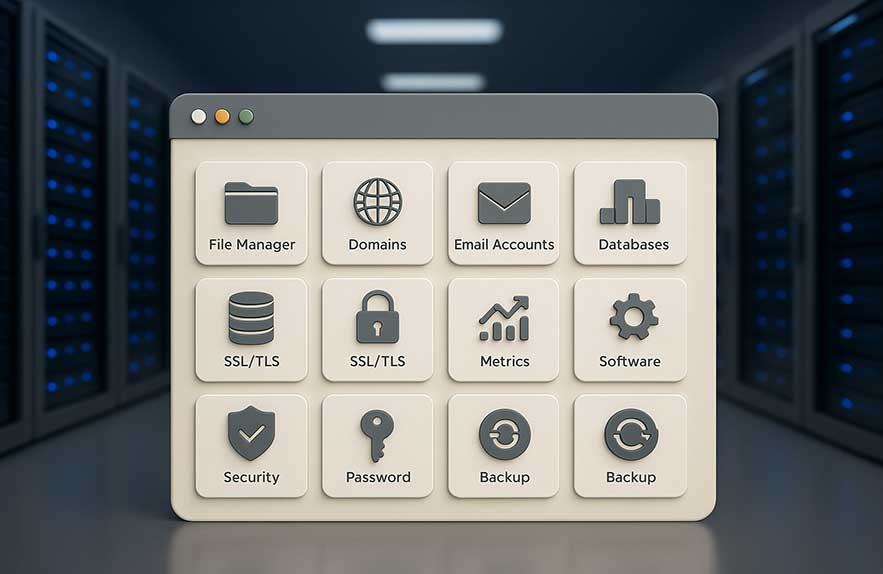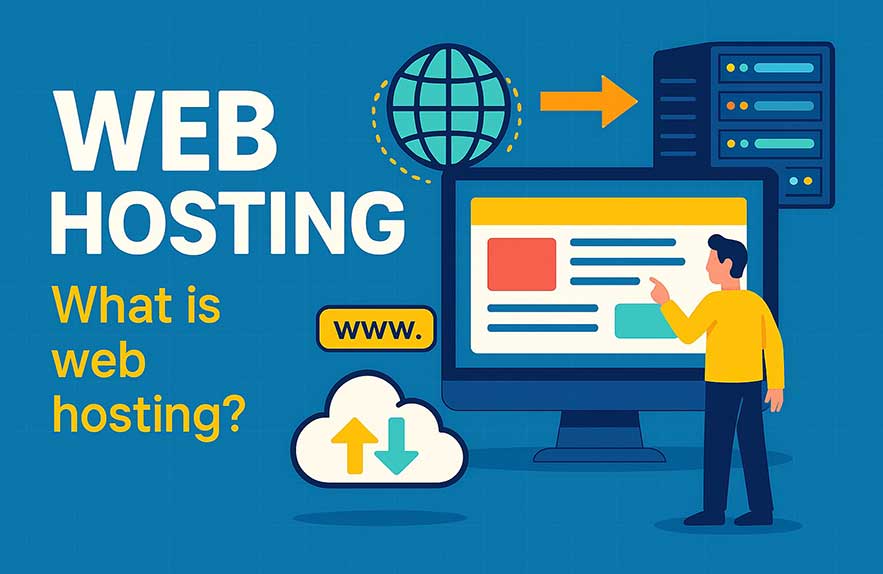
Why Web Hosting Matters for Small Business Success
If you own a business or you’re thinking about starting one, you’ve probably heard how critical it is to have an online presence. Every business owner wants their company to look credible, run smoothly, and have customers who actually find them online. That’s where the choice of best web hosting for small business comes in—and, honestly, it’s a decision that can make or break your digital journey.
The world of business website hosting is packed with options, and it can feel a bit overwhelming at first. You’ll see phrases like “top hosting for small business” or “cheap web hosting for small business” popping up everywhere, each promising to be perfect for entrepreneurs like you. The reality? Not all small business hosting services are created equal. Some are tailored to help you grow and protect your reputation, while others cut corners, leaving you to deal with outages, slow load times, or a support team that’s MIA just when you need them.
Let’s be real—if your website is slow or goes down, potential customers aren’t going to wait around. They’ll simply move to the next business on their Google results. That’s why finding the right small business hosting services isn’t about chasing rock-bottom prices alone. Sure, everyone wants affordable hosting, but the best choice blends reliability, helpful support, and the ability to scale as your business evolves. The most successful small business owners I know always keep an eye on reviews that specifically target the unique needs of local shops, consultants, freelancers, and creative startups.
There are a few big questions every entrepreneur should ask: Will my site stay online during busy seasons? Does this host make it easy to get help or add new features? Are there pricing options that won’t stretch my budget if I’m just starting out? And when I grow, can I move smoothly to a larger plan? Sorting through top hosting for small business means looking for real-world proof—think uptime guarantees, responsive customer support, daily backup options, and extra security for sensitive client or payment info. These aren’t just tech details; they’re the foundation of trust with your customers.
Throughout this guide, I’ll share everything I’ve learned (the easy way and the hard way) about picking the right hosting for a business site. You’ll see honest comparisons of cheap web hosting for small business, learn what makes a host truly reliable, and discover how to avoid common traps that waste time or money. No hype—just practical advice that helps real-world businesses stay open, even when you’re asleep. Let’s get started on building your ideal path to small business hosting success.
Table of Contents
- Why Web Hosting Matters for Small Business Success
- Key Features to Look for in Small Business Hosting Services
- Understanding Hosting Types: Which Option Fits Your Small Business?
- Comparing Top Providers: Which Web Hosts Stand Out for Small Businesses?
- How Much Should You Pay? Understanding Pricing for Small Business Hosting
- Planning for Growth: Future-Proofing Your Small Business Hosting
Key Features to Look for in Small Business Hosting Services
Now that you know why web hosting has such a massive impact on your business, let’s talk about how to actually spot the best web hosting for small business needs. With so many companies claiming to be top hosting for small business, it’s easy to get lost in buzzwords or fancy-looking dashboards. But real-world business owners need more than just clever marketing. What truly matters are the features and services that make your daily operations smoother, keep your website safe, and help your growth—not just empty promises on a landing page.
First up is reliability. Every business website hosting plan should come with an uptime guarantee (ideally 99.9% or better). If your site disappears even for a few minutes during business hours, you risk losing sales, missing out on client leads, or hurting your reputation. The best hosts monitor their servers constantly and have strong backup systems, so even if the worst happens, you can restore your site fast and keep business rolling.
Security is the next must-have for small business hosting services. Even if you’re just starting out, hackers and bots are a real threat. Does your host offer free SSL certificates? Automated malware scanning? Regular software updates behind the scenes? Cheap web hosting for small business is great for saving cash, but make sure you don’t cut corners on keeping customer data safe. The smartest pick is a balance of price and protection—avoid anything that makes you do the security heavy lifting all by yourself.
Easy management is also vital. As a small business owner, you don’t have hours to spare poking around confusing dashboards or dealing with setup headaches. Look for intuitive control panels, one-click app installs, and simple tools for adding email, products, or pages. Top hosting for small business puts user-friendliness first so that you can get online—and stay online—without a tech support degree on the wall.
Finally, don’t overlook customer service and scalability. Fast, helpful, 24/7 support should be included, not an upgrade you chase after something breaks. And as your business grows, your hosting plan should grow with you—whether that means more bandwidth, extra storage, or higher-level business website hosting options for a busy shop. Great small business hosting services won’t trap you in rigid plans; instead, they’ll offer flexible paths so your website keeps up with your ambitions.
In the next section, we’ll break down specific types of hosting—from shared to cloud—to help you match your business goals with the features that matter most. Choosing the best web hosting for small business isn’t about flash; it’s about picking a partner who puts your success first, every single day.
Understanding Hosting Types: Which Option Fits Your Small Business?
If you’re researching the best web hosting for small business, you’ve probably stumbled across a whole menu of hosting types. The most familiar are shared, VPS (Virtual Private Server), dedicated, and cloud hosting. But figuring out which one suits your actual business needs isn’t always a straightforward task. Let’s break down what each of these small business hosting services offers, and why it might—or might not—be the right fit for your company’s future.
Shared Hosting: This is the go-to for many businesses just getting started. With shared hosting, your website “lives” on a server with lots of other websites, and everyone splits the costs. That’s why this is often seen as cheap web hosting for small business startups. The big plus here is affordability—you can get a site online without spending much at all. However, the trade-off is performance and speed: if another site on the same server gets busy, your site might slow down. For basic business pages, portfolios, or new online shops, shared hosting can be a smart launching pad. Just keep in mind its limitations if you expect to grow quickly or need custom tech features.
VPS Hosting: Think of VPS as the next step up. Here, your site still shares a server with others, but you get a guaranteed chunk of resources—kind of like moving from a shared apartment to your own condo. This usually means better reliability and faster load times, so VPS is one of the top hosting for small business options as a company begins to scale. If you handle more customers, sell online, or use special software, a VPS plan can offer the control and flexibility you need, without the big leap up in cost that comes with a dedicated server.
Dedicated Hosting: This is the luxury suite of the business website hosting world. You get an entire server to yourself, with all the power, storage, and security options, but it comes at a higher price. Dedicated hosting is typically used by growing retail stores, agencies with lots of traffic, or any business where speed and security are mission-critical. For most smaller ventures, the investment is unnecessary early on, but it’s great to know this level of small business hosting services exists for future growth, especially if you’re planning for a major online launch.
Cloud Hosting: This is a newer, flexible option that’s gained huge traction. Instead of hosting your site on a single server, cloud hosting spreads it across many, so even if one server goes down, your site stays live. Many top hosting for small business providers offer cloud plans with pay-as-you-use pricing. This is ideal for newer businesses banking on flexibility and for those expecting unpredictable visitor numbers—think seasonal shops, event organizers, or those with fast-growing audiences. Cloud hosting can be a great way to get powerful features without a heavy monthly bill, making it a popular alternative to traditional cheap web hosting for small business.
Choosing between these small business hosting services really comes down to your goals and your current stage: Are you launching your first site on a budget? Growing fast and want reliability without the headache? Selling online and worried about security? The best web hosting for small business is the kind that lines up with your vision, lets you upgrade as you go, and never leaves you stuck with a feature you’ll never use. In the next section, we’ll put some of the most popular providers head to head—so you can see how the top hosting for small business options compare in the real world.
Comparing Top Providers: Which Web Hosts Stand Out for Small Businesses?
With so many options claiming to offer the best web hosting for small business, it can be tricky to tell marketing hype from genuine service. That’s why it helps to look at real comparisons, peer reviews, and official feature pages. Different businesses have unique requirements—some owners want cheap web hosting for small business, while others care more about rock-solid uptime, easy growth, or top-rated customer service. Let’s see how a few popular small business hosting services measure up when put head-to-head.
Bluehost is often mentioned as a go-to business website hosting choice, especially for WordPress users. They offer one-click installs, 24/7 support, and scalable plans. Find their current small business packages and tools on the official Bluehost hosting plans page. For an analysis of their strengths and weaknesses, you might appreciate the detailed review from PCMag.
SiteGround stands out for its responsive support team and fast servers, often earning a spot on top hosting for small business lists. Their platform is optimized for performance, with free daily backups and advanced security features that matter to small business owners. You can compare their service levels on the SiteGround business hosting page or visit TechRadar’s independent review for unbiased opinions.
Hostinger attracts many entrepreneurs with its cheap web hosting for small business, thanks to low starting prices and a straightforward dashboard. Despite its affordability, Hostinger doesn’t cut corners on essentials—recent years have shown strong uptime and helpful chat support. For details about pricing and included features, head to the Hostinger web hosting plans, or see what small businesses are saying in Hostinger’s Trustpilot reviews.
While these are some of the top hosting for small business options, it’s important to keep your specific needs front and center. Don’t be afraid to reach out to their sales teams, test customer support responsiveness, or request a demo if available. Doing a little extra research—like browsing the web hosting software reviews on Capterra—can give you honest feedback you won’t see in glossy ads. Ultimately, the best web hosting for small business is the one that’s reliable for your customers, responsive when you have questions, and able to grow with you over time.
For small business hosting services, be wary of deals that sound too good to be true or lock you in for long contracts before you’re ready. Start with a plan that fits your business today, but make sure upgrading is easy when you need it. In the next section, we’ll break down how much you should expect to pay and show you how to spot a fair price—whether you need cheap web hosting for small business or a premium solution with all the extras.
How Much Should You Pay? Understanding Pricing for Small Business Hosting
One of the most confusing parts of searching for the best web hosting for small business is figuring out what’s a good price—and what’s simply too good to be true. While there’s no single answer that fits everyone, getting a handle on typical costs and what you get at each level makes it much easier to spot the real deals among all the cheap web hosting for small business ads you’ll see online.
Entry-level plans for small business hosting services usually start in the range of $2 to $10 per month if you pay yearly (and yes, it’s true that you’ll sometimes see even lower rates with a three-year commitment, but be careful with those contracts). This range gets you shared hosting—a great fit for new or low-traffic sites. As your business and your traffic grow, you may need to step up to VPS or managed WordPress hosting. Expect to see higher monthly fees for these plans, often closer to $15–40 depending on the specific features your business website hosting requires.
So what makes one provider’s plan more expensive than another’s? Pay attention to what’s included: the best web hosting for small business isn’t just about raw storage or bandwidth. Look for daily backups, SSL certificates (for secure, “https” sites), smart anti-malware tools, responsive support, and room to expand. Some hosts might advertise “unlimited” everything, but the reality is most businesses come nowhere close to needing it, and hidden restrictions sometimes apply. The Nira guide on real hosting costs includes a clear checklist to help you compare plans side-by-side before you make a commitment.
It’s tempting to go straight for the cheapest offer, but remember that saving a few bucks upfront can cost you far more in lost sales and fixes down the line. That’s why top hosting for small business companies are upfront with their renewal rates, don’t surprise you with extra fees for email or backups, and have real humans ready to help when your site’s down—even if you’re just a small account. Consider looking at a few hosting price comparisons from Fit Small Business to see how different options measure up for real companies like yours.
In short, the price you pay for small business hosting services should match the value you get—not just the low sticker amount. Invest in the plan that provides reliability, security, and peace of mind for your business website hosting. And always read reviews closely so you know your provider is going to be there when it counts.
As you’re weighing options and planning for your bottom line, remember: good hosting is an investment in your business’s reputation and long-term growth. Next, we’ll help you prepare for what comes next—future-proofing your website with hosting that can grow as fast as your goals.
Planning for Growth: Future-Proofing Your Small Business Hosting
Choosing the best web hosting for small business isn’t just about what works today—it’s about making sure your site can handle tomorrow’s opportunities without a hitch. Whether your business is brand-new or you’re preparing for a big marketing push, future-proofing your hosting means picking a service that’s ready to grow alongside you, instead of holding you back.
First things first: don’t fall for the myth that cheap web hosting for small business can’t handle growth. Modern hosting companies are far more flexible than they once were. Many of the small business hosting services we’ve talked about make it simple to add resources or switch to a higher tier as your traffic or product catalog grows. Some platforms even allow seamless transitions to VPS or cloud plans with just a click, so you’re never stuck with a hosting plan that’s too small for your goals.
For a sense of what a smooth upgrade path looks like, read the GoDaddy guide to scaling your business website. It covers common triggers for growth, like viral campaigns or peak shopping seasons, and explains what a hosting provider should offer at each stage.
Growth-ready hosting should always include responsive, helpful customer support. If something goes wrong in the middle of a sales rush, you want pros available and ready to fix things, not just generic FAQs or ticket systems that leave you waiting. Look for hosts that consistently rank high for small business website hosting, with transparent reviews mentioning fast help—not just fancy features. Uptime guarantees, scalable bandwidth, and proactive security are all must-haves if you plan to attract more visitors or expand your online store’s offerings. Capterra’s list of web hosting mistakes to avoid is a worthwhile read for spotting the pitfalls most new business owners overlook.
Another crucial feature is backup and restore capability. As your website grows, protecting your digital assets becomes even more important. The best web hosting for small business makes it easy to save and recover your site, so accidental deletions or hacking incidents are just speedbumps—not roadblocks. And as your needs change, the top hosting for small business will help you add email accounts, subdomains, or new security layers on demand, rather than pushing you into costly plans you don’t need yet.
Above all, remember this: business website hosting should be a partner in your success—not a bottleneck. Look for a provider that wants to see your company thrive, not just collect your monthly payment. As you plan for bigger days, keep asking tough questions, read up on real business experiences, and don’t hesitate to switch to a provider with a stronger reputation if yours stops putting you first. A reliable, scalable hosting solution is one of the quiet keys to growth for every modern company.
By prioritizing flexibility, support, and real-world performance, you’ll not only pick the best web hosting for small business today—you’ll build a foundation that’s ready for whatever success tomorrow brings. Here’s to a future where your business, and your website, can grow together smoothly and confidently.

